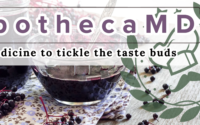Effect of complexation conditions on microcapsulation of Lactobacillus acidophilus in xanthan-chitosan polyelectrolyte complex gels
Acta Sci Pol Technol Aliment. 2015 Jul-Sep;14(3):207-213. doi: 10.17306/J.AFS.2015.3.22.
ABSTRACT
BACKGROUND: Lactobacillus acidophilus has become increasingly popular because of their beneficial effects on health of their host, and are called proboscis. In order to exert beneficial effects for probiotics, they must be able to tolerate the acidic conditions of the stomach environment and the bile in the small intestine. Microencapsulated form has received reasonable attention, since it can protect probiotic organisms against an unfavourable environment, and to allow their release in a viable and metabolically active state in the intestine. The aim of this study was to investigate some factores, such as chitosan solution pH and concentration, xanthan concentration, cell suspension-xanthan ratio, mixed bacteria glue liquid-chitosan ratio, which impacted the process of microencapsulation of L. acidophilus.
METHODS: In this study, L. acidophilus was immobilized with xanthan⁄chitosan gel using extrusion method. The viable counts and encapsulation yield of L. acidophilus encapsulated in different chitosan solution pH (4.5, 5, 5.5 and 6), in different chitosan concentration (0.5%, 0.7%, 0.9% and 1.1%), in different xanthan concentration (0.5%, 0.7%, 0.9% and 1.1%), in different cell suspension-xanthan ratios (1:5, 1:10, 1:15 and 1:20), in different mixed bacteria glue liquid-chitosan ratios (1:3, 1:4, 1:5 and 1:6), have been investigated by single factor experiment method.
RESULTS: The optimum conditions of microencapsulated L. acidophilus have been observed. The optimum chitosan solution pH for L. acidophilus was 5.5; the optimum chitosan concentration was 0.9%; the optimum xanthan concentration was 0.7%; the optimum cell suspension-xanthan ratio was 1:10; the optimum mixed bacteria glue liquid-chitosan ratio was 1:3.
CONCLUSIONS: These results will be helpful to further optimize the process of L. acidophilus microencapsulation, and provide reference for obtaining higher viable counts and entrapped yield of L. acidophilus microcapsules.
PMID:28068028 | DOI:10.17306/J.AFS.2015.3.22

